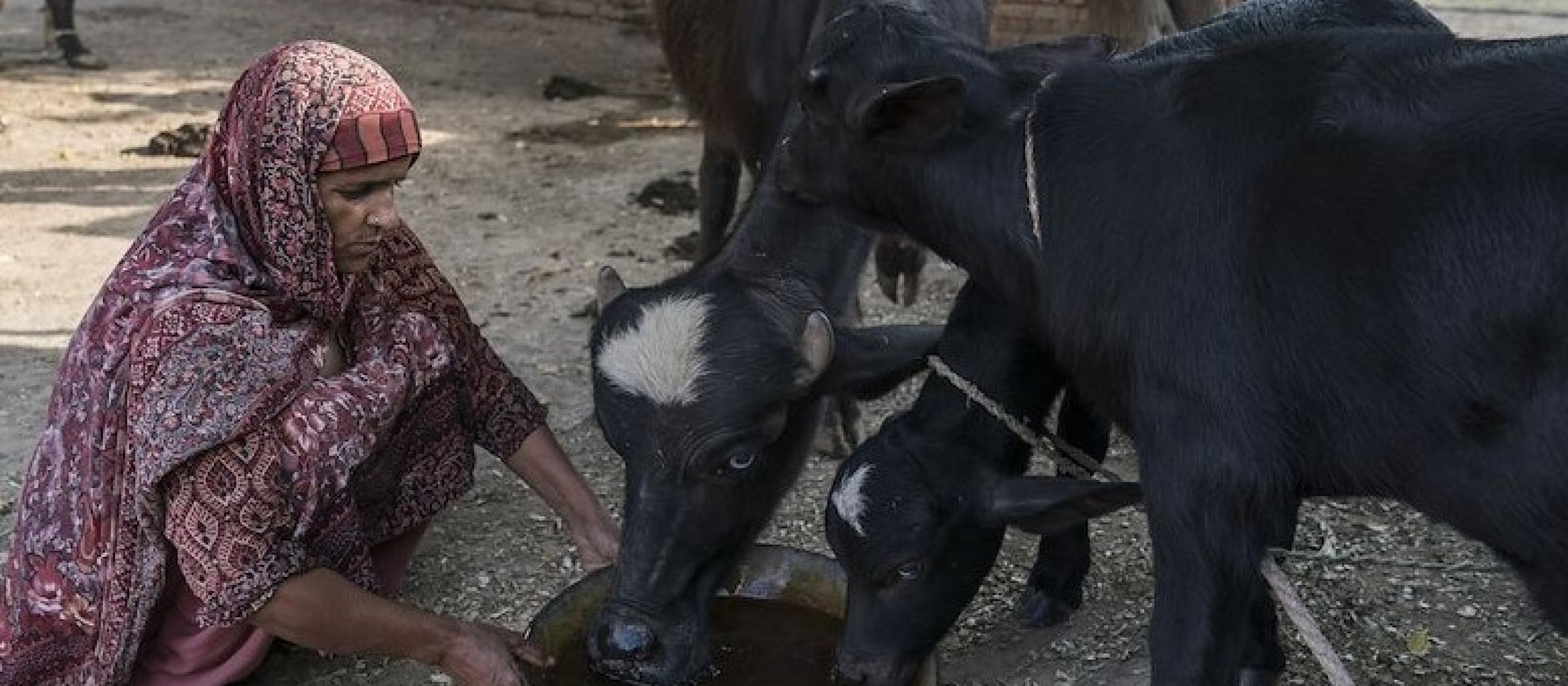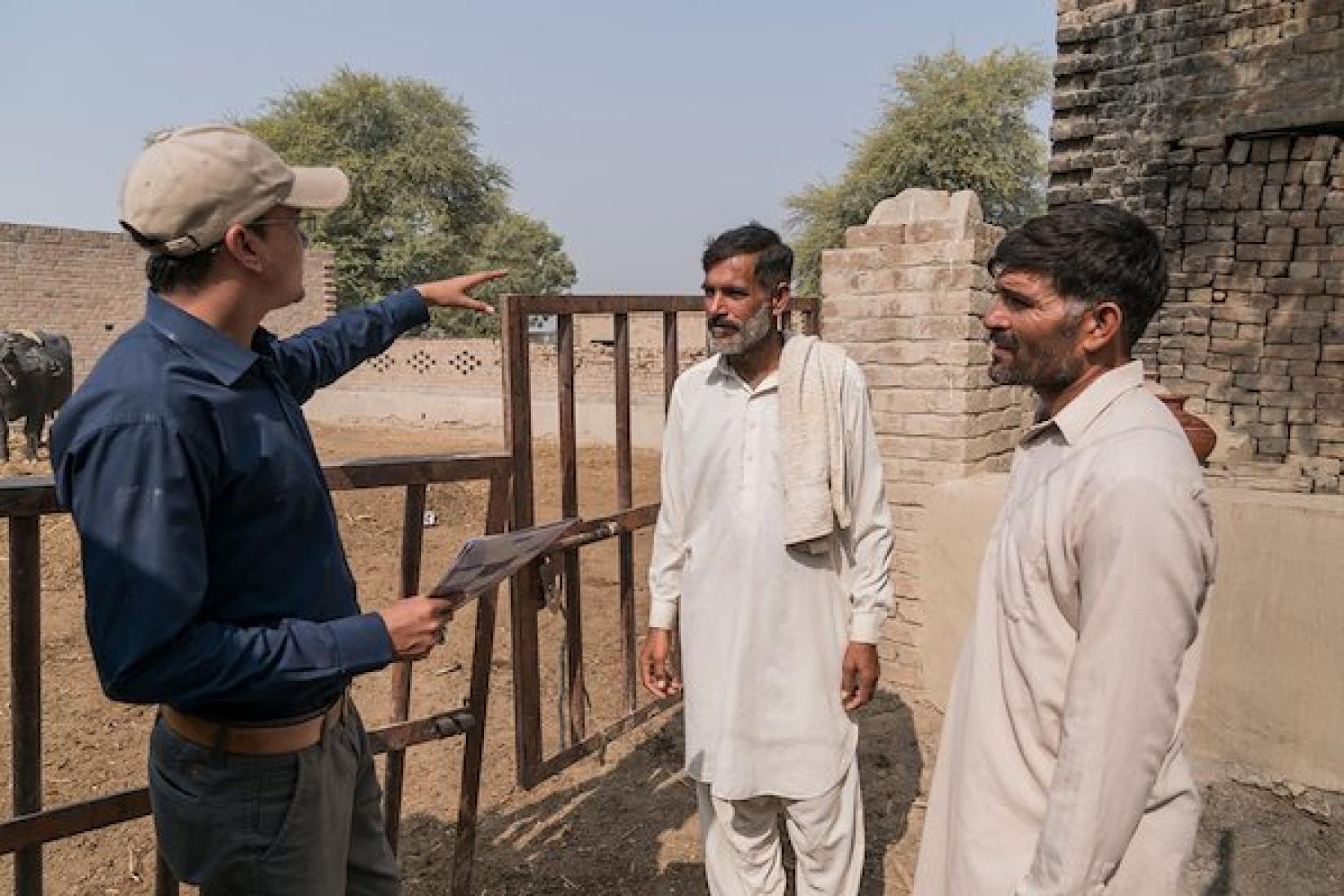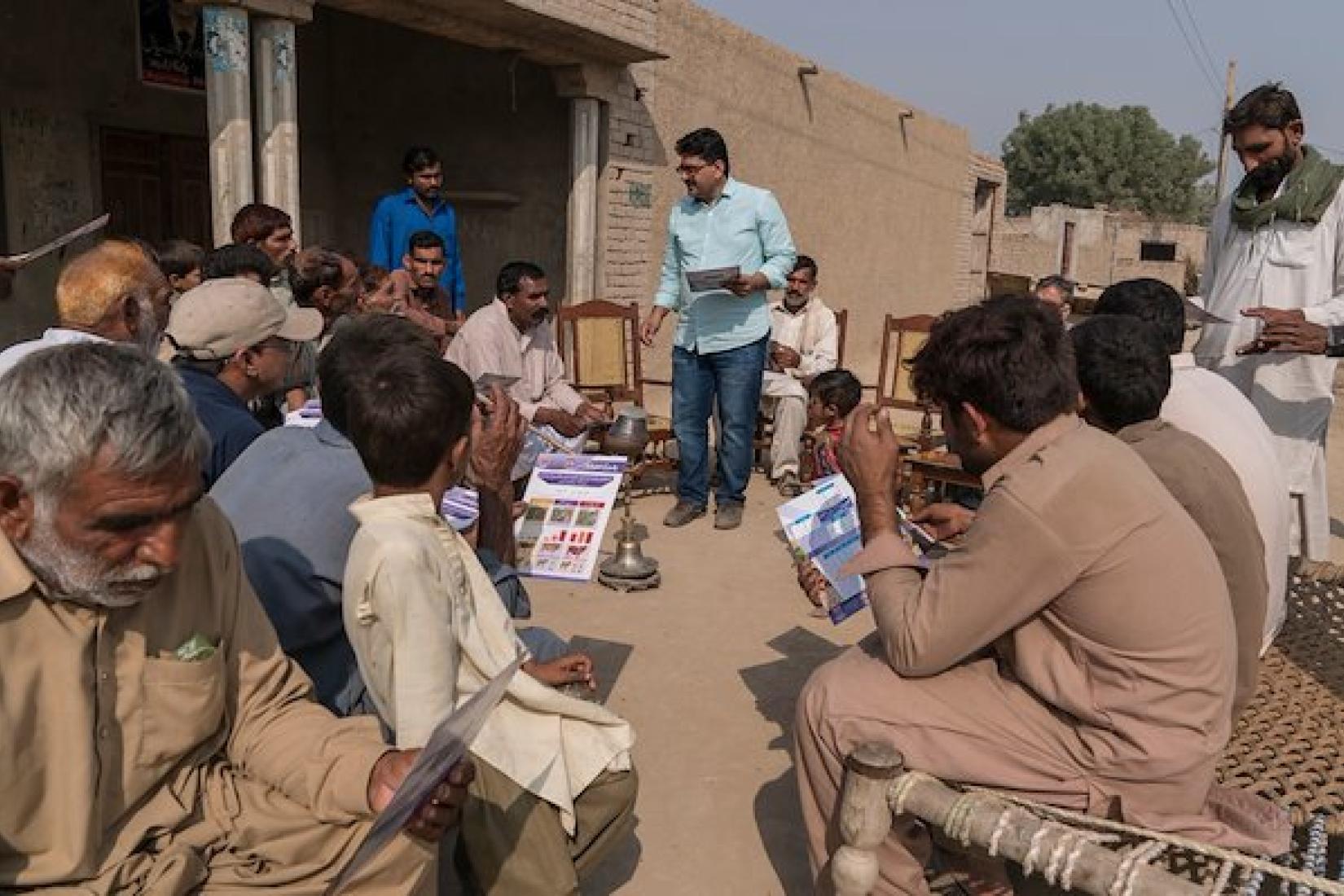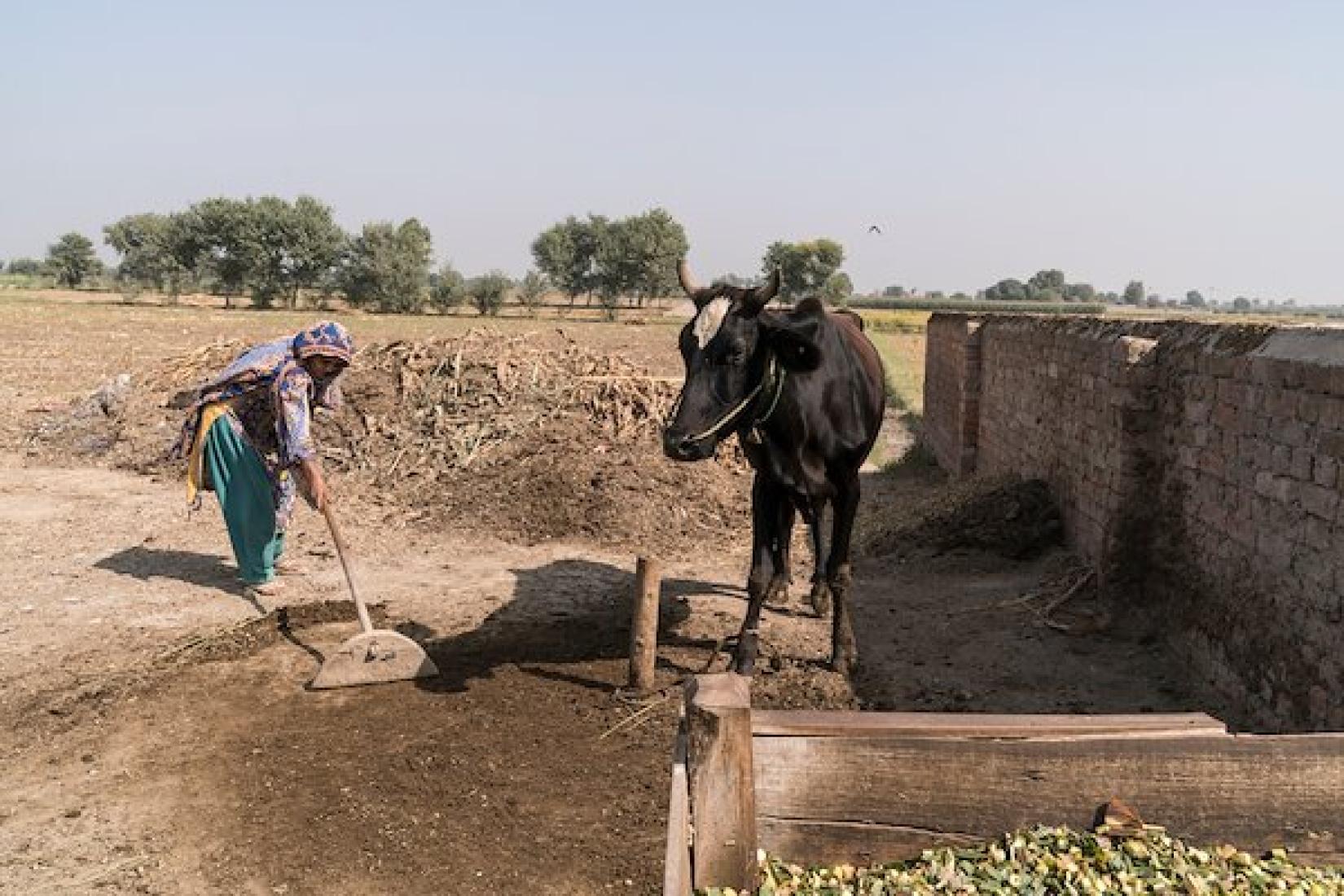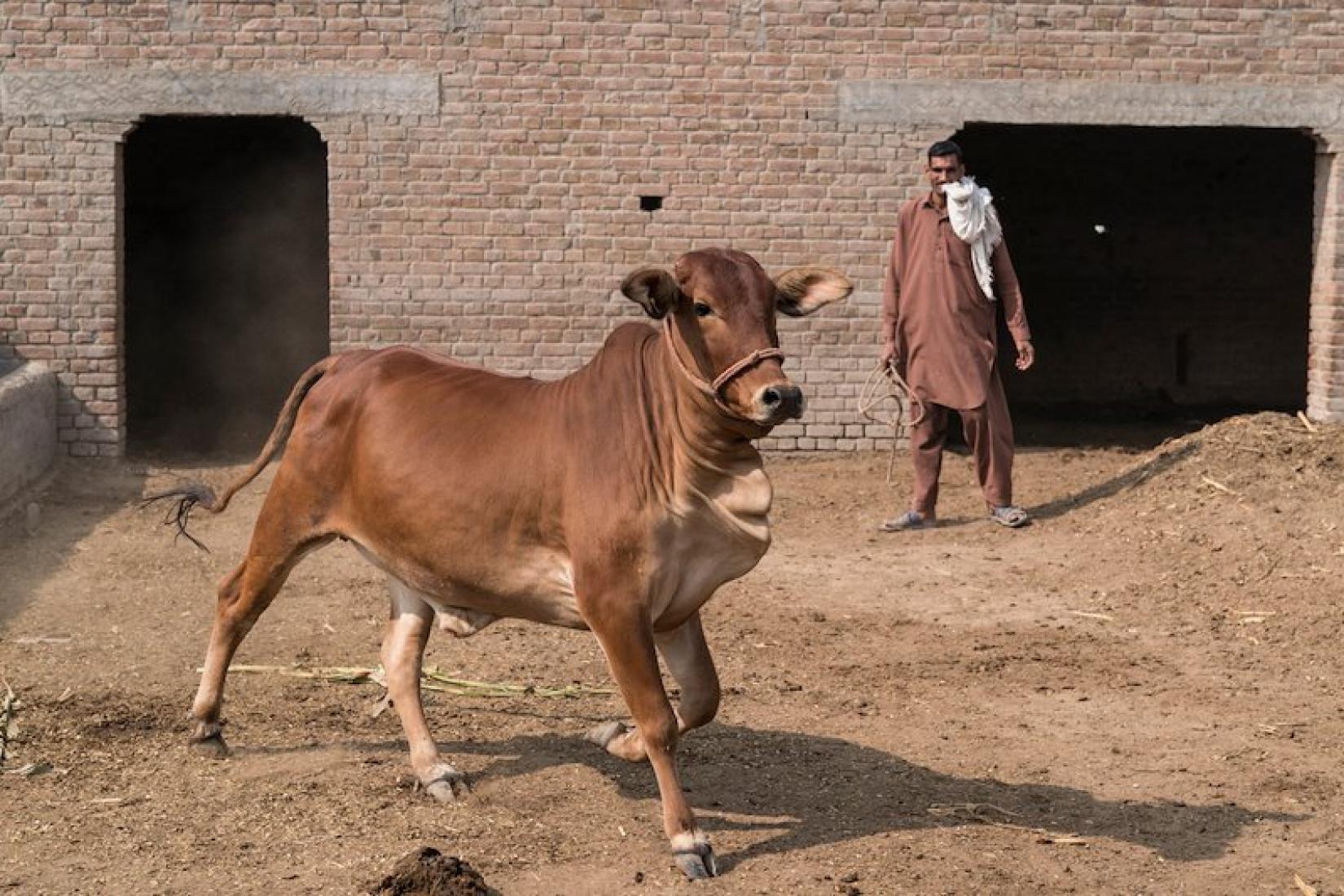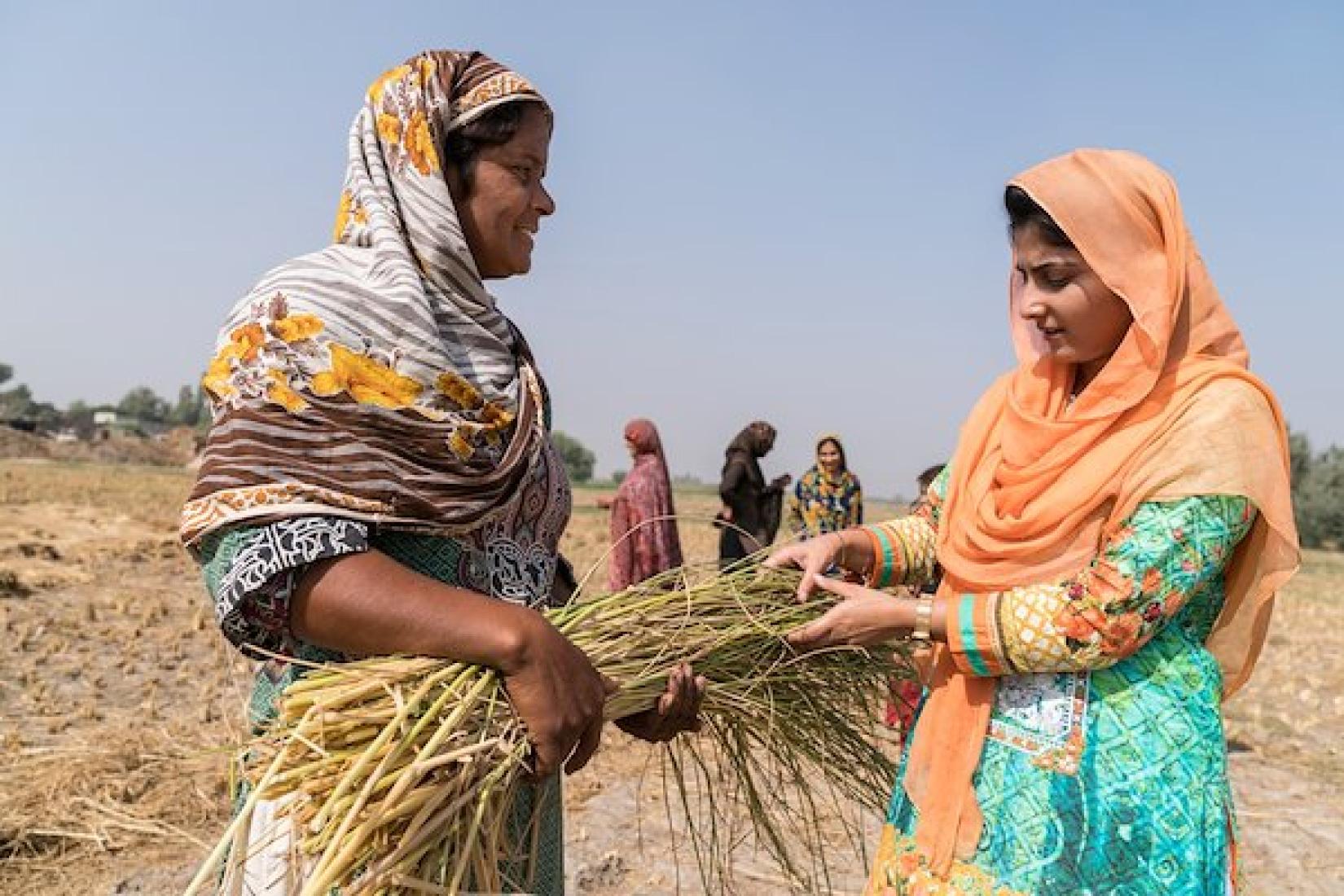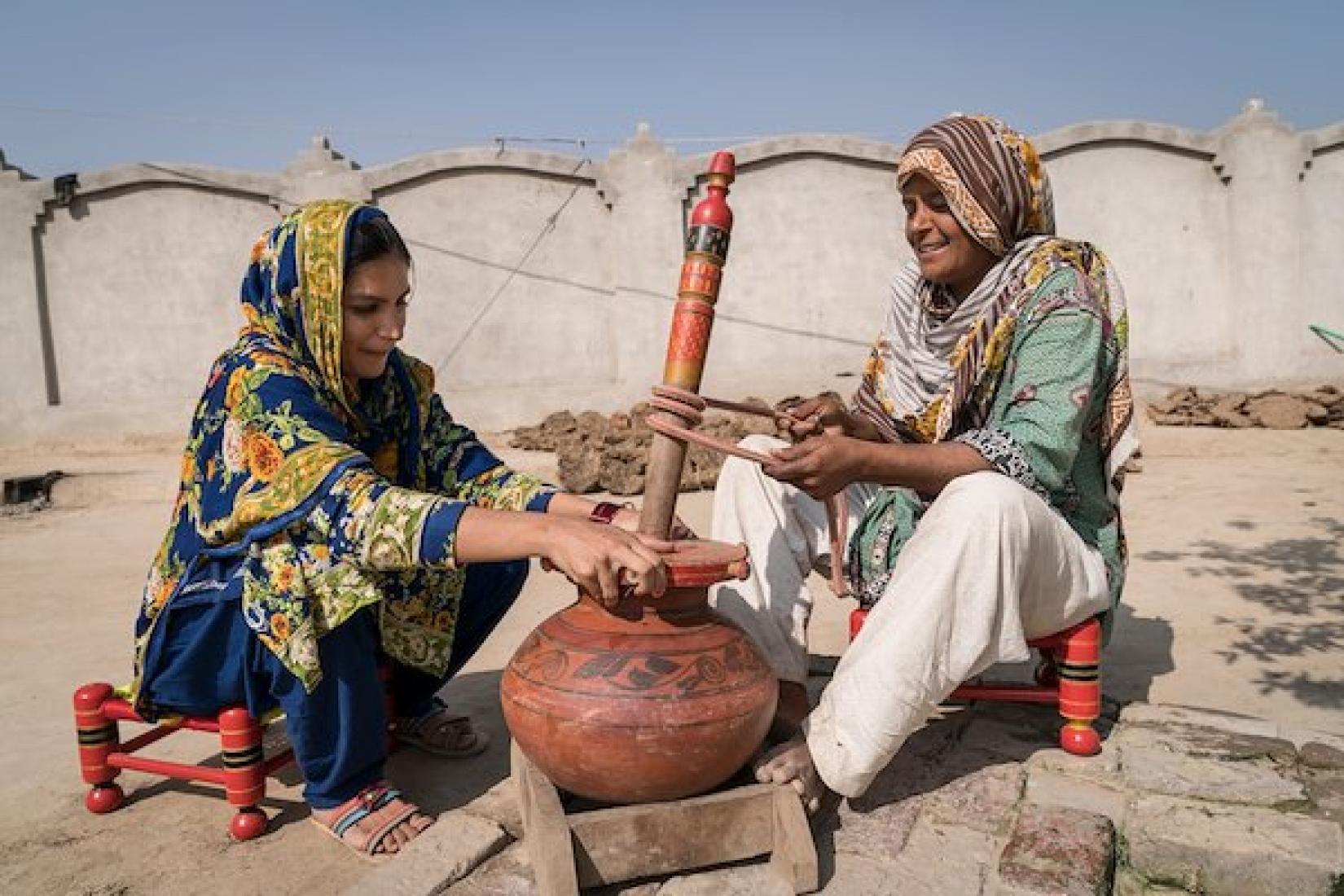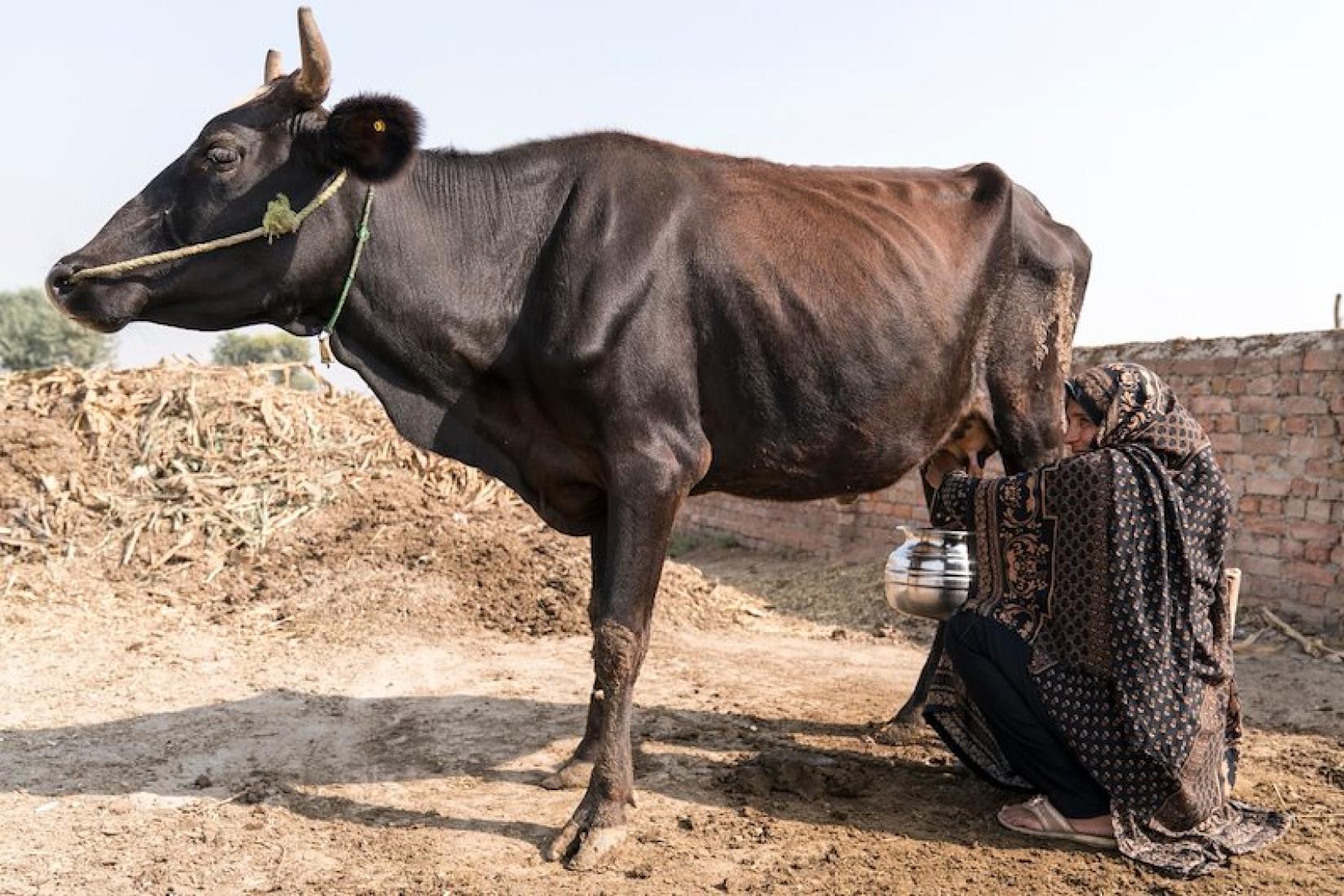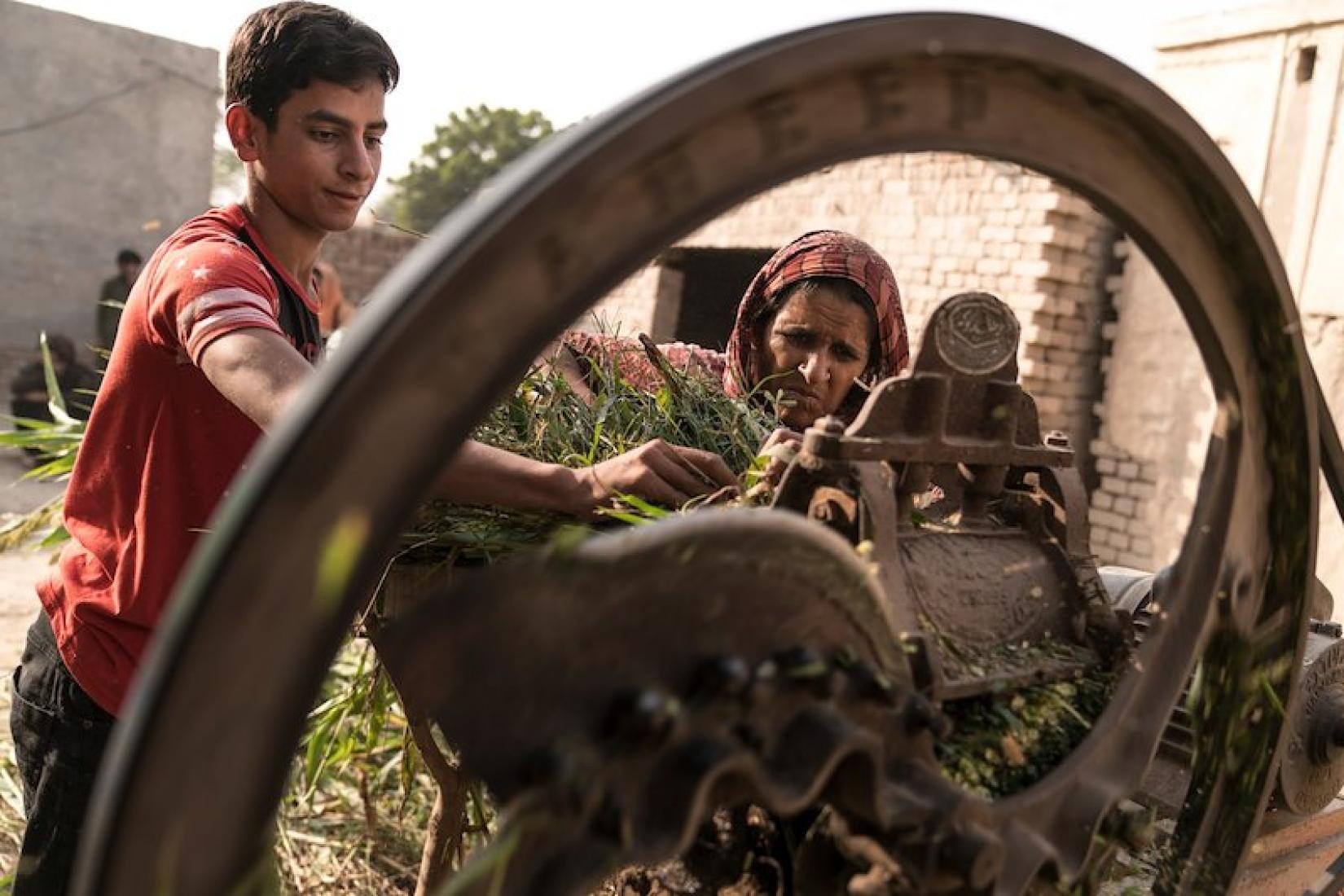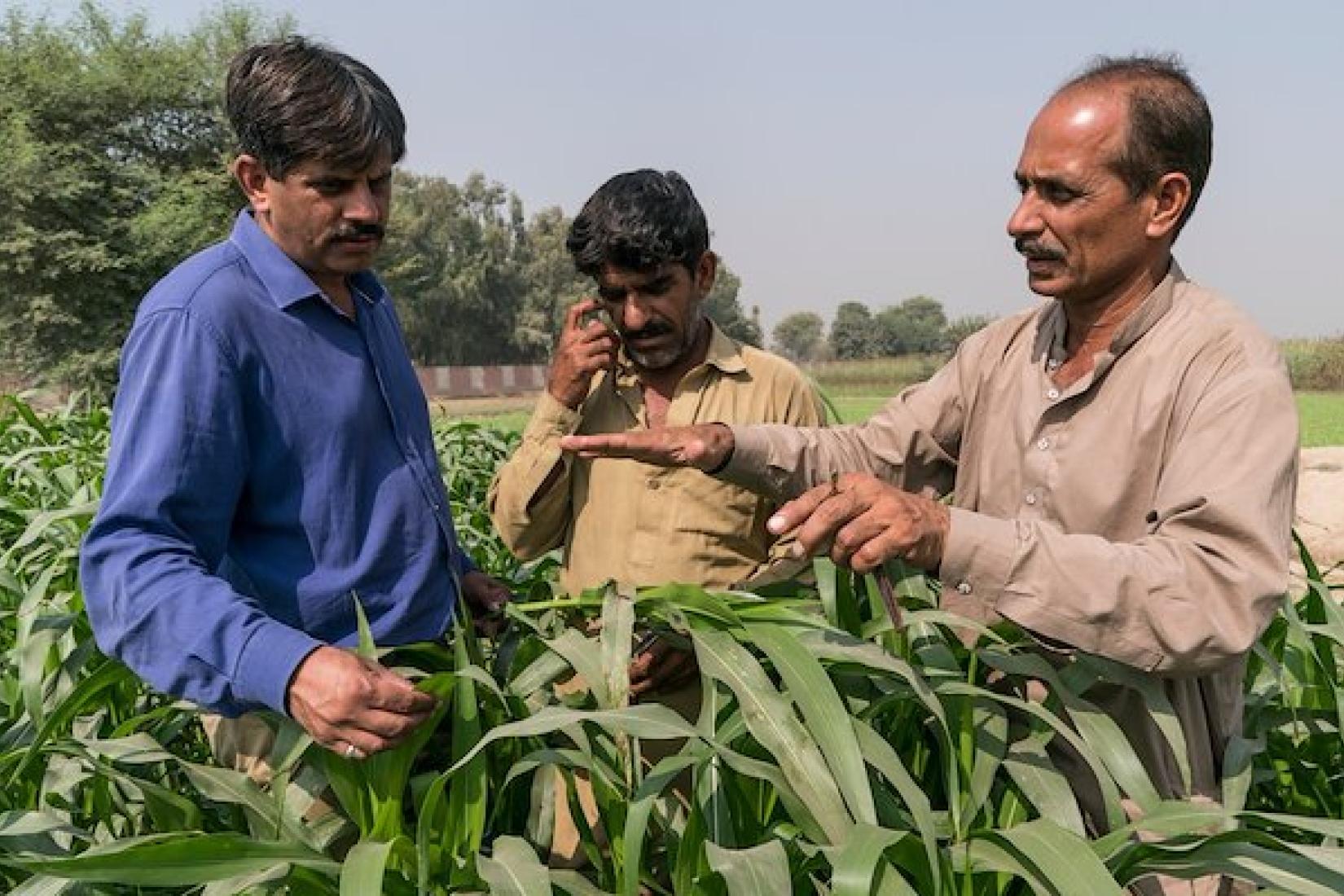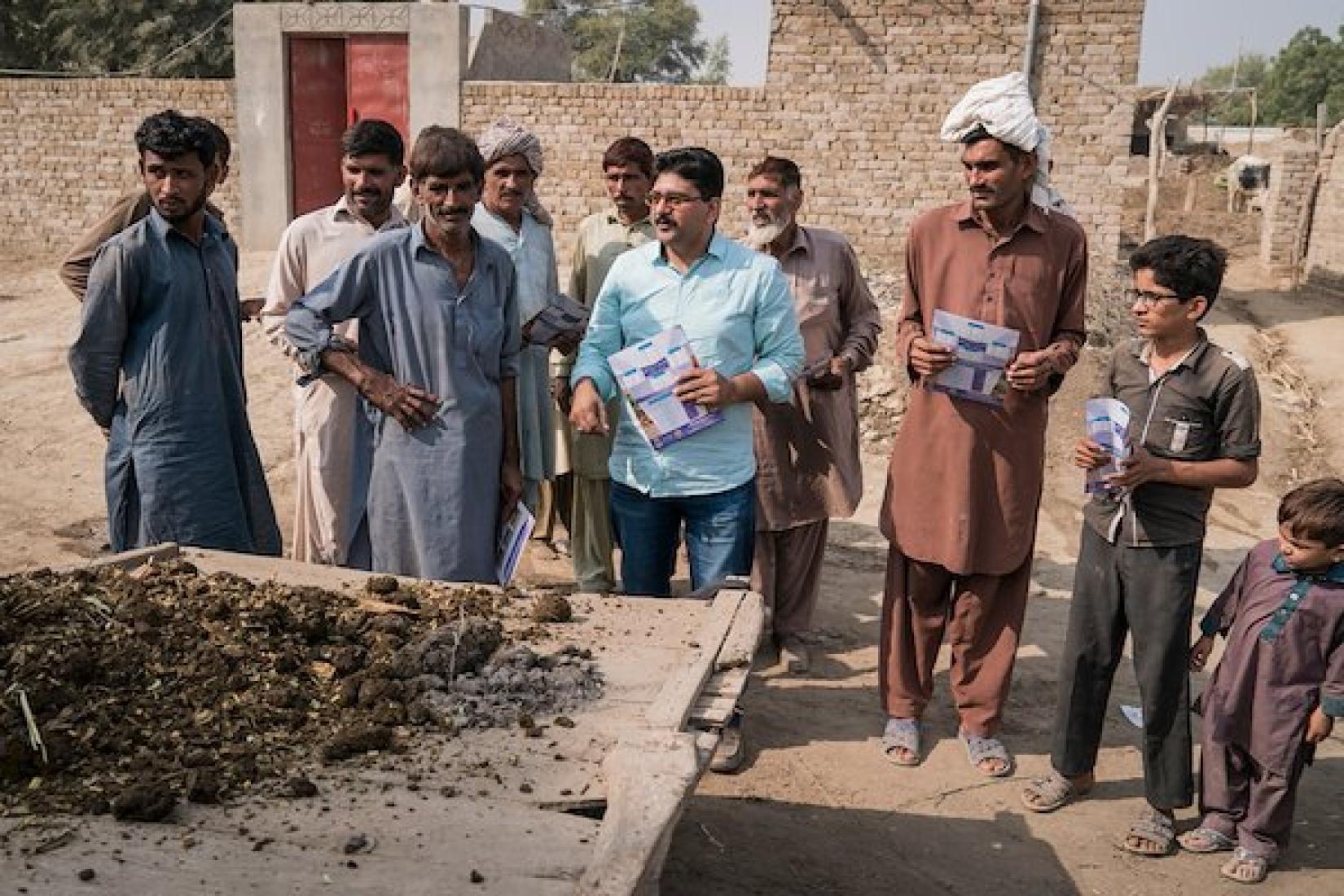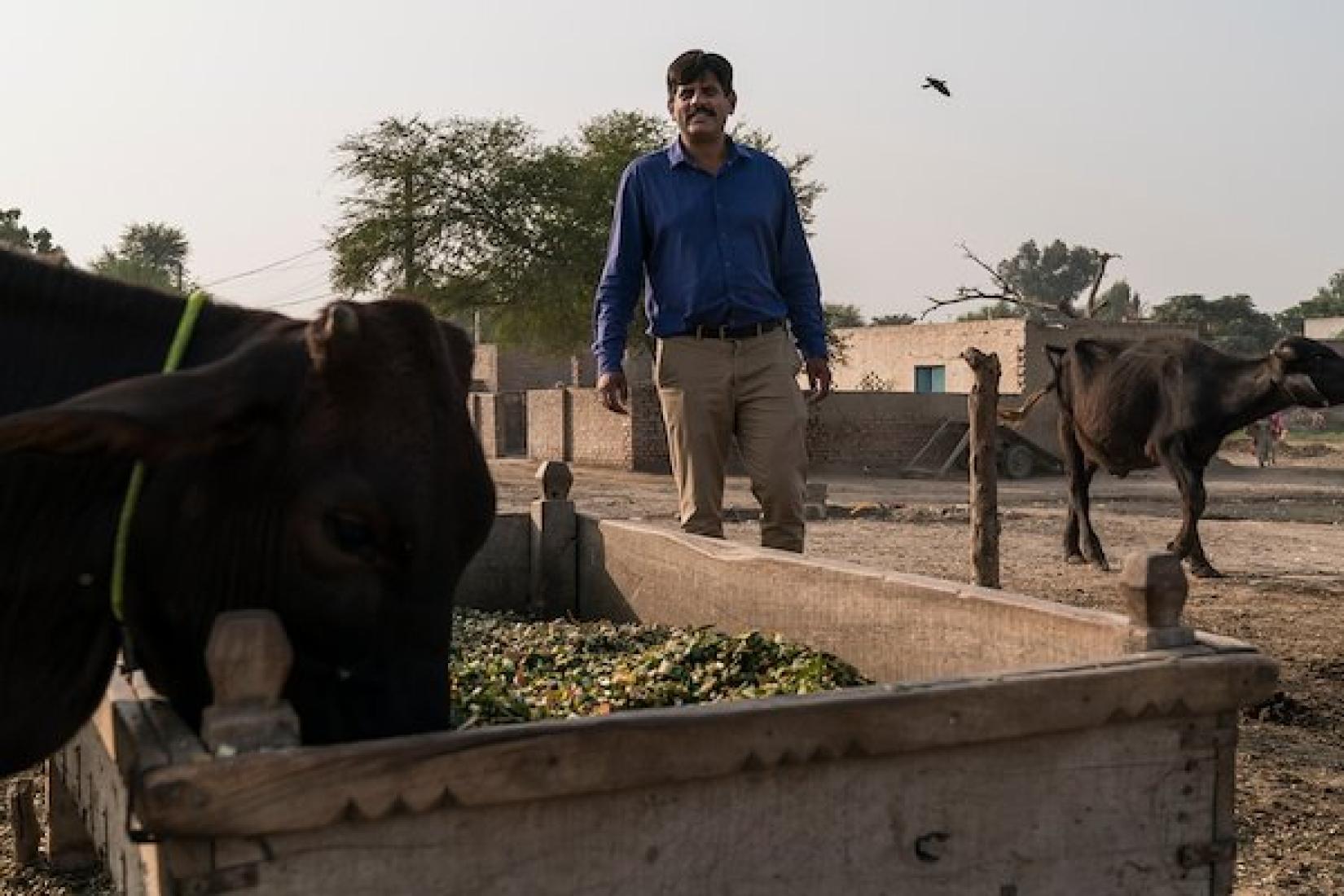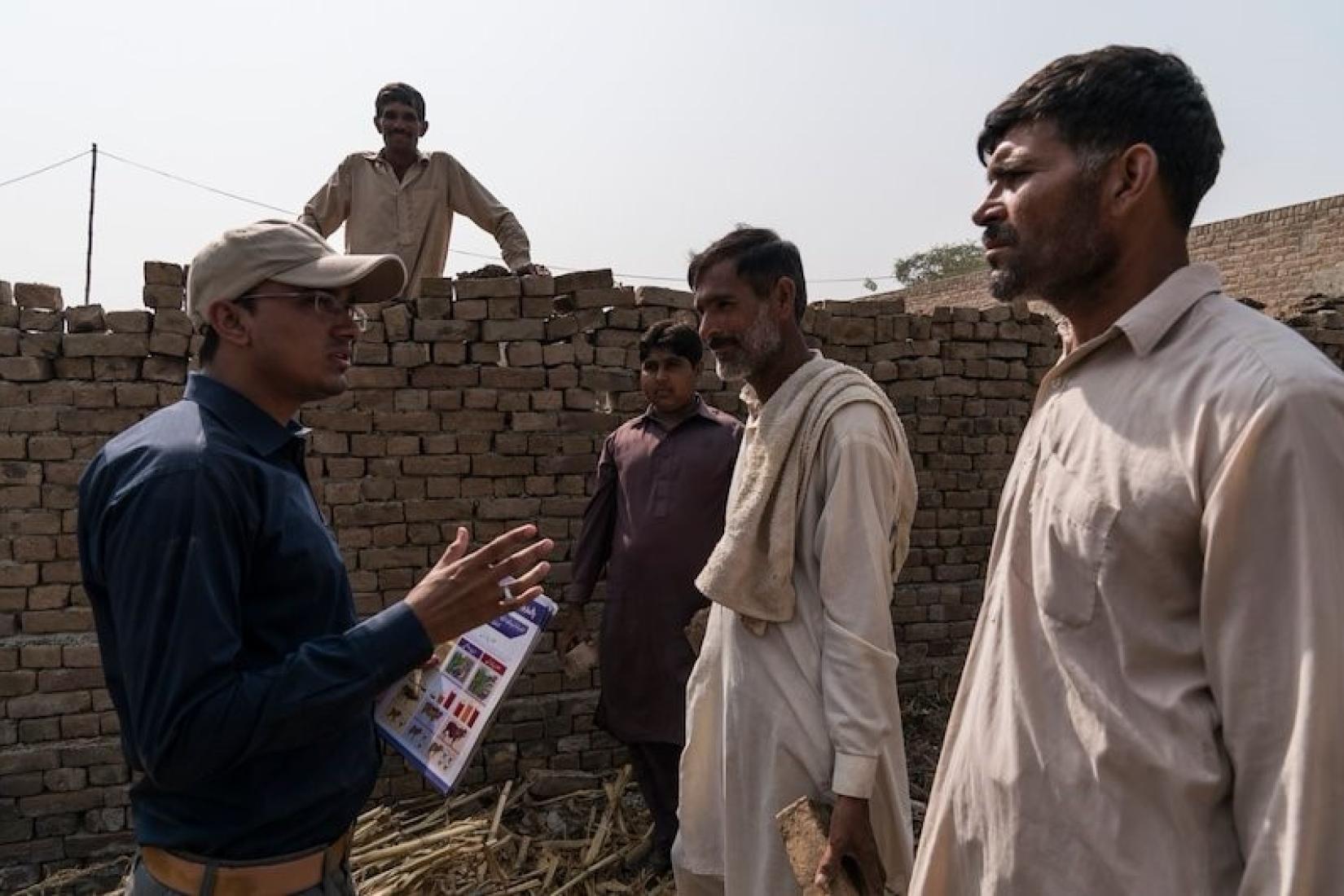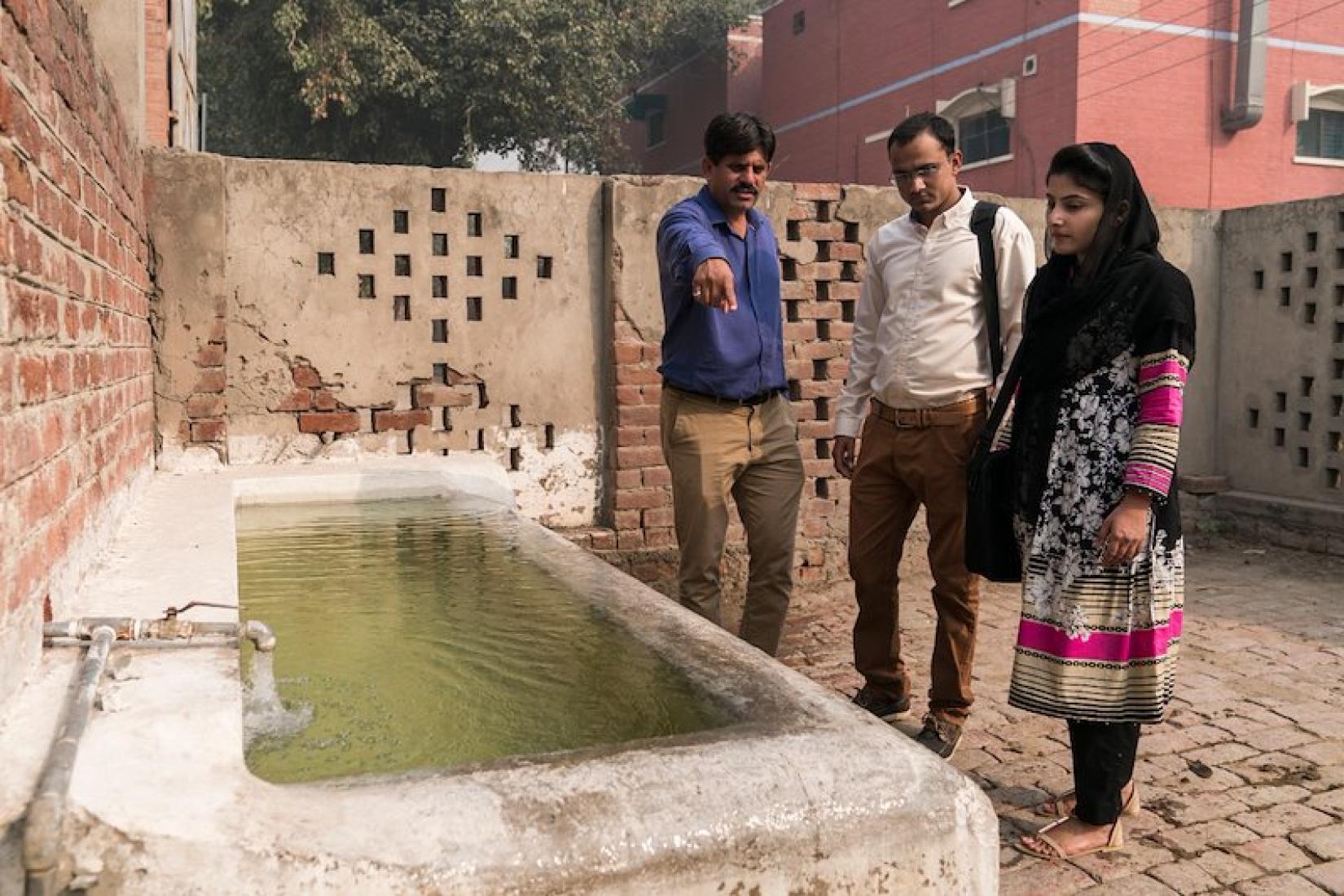In addition to these limitations, project staff initially struggled to convince local famers to adjust their traditional methods by taking part in the project. Participation increased over time, thanks to the dedication of project staff and the training of local field extension workers who engaged with farmers directly through a series of discussions groups. These groups raised awareness around the different components required for successful animal management and demonstrated first-hand how project participation could improve productivity.
‘Before the project our animals were always tied with pegs to the ground,’ says Allahdad, a local dairy farmer in Punjab Province. ‘If we had time we might offer them water but if we were busy we might skip [giving them a drink]. Now after being involved with the project, they have shared new methods and practices with us.’
For farmers like Allahdad, these simple changes made a significant difference, with participants recording not only improvements in their animal’s health, but noticing sizeable increases in milk production—as much as an extra litre per animal each day—meaning more income for the household.
The other major impact the project had was calf mortality rates, with the improved milk feeding regimes and living conditions not only leading to a dramatic reduction in calf mortality, but also doubling the speed at which calves grew.
‘Since then I have constructed a shed, I give ample feed and free access to water, the animals can eat and drink as they desire. They look much better now. We now actually have spare time which we can put into other activities,’ says Allahdad.
‘I have spent money on adopting these new practices, but it has allowed me to earn more income too. Of course it’s a joyful moment as a livestock owner to observe my healthy animals with free access to feed and water.’
For Allahdad, the project and team of researchers have empowered him and his community with the knowledge to improve their livestock’s health and ultimately their own lives. ‘We are so thankful, we salute the team!’ says Allahdad. ‘They have invested so much time and energy to put us on this path. Now we must continue of this journey.’
THE GROWING ROLE OF WOMEN
Another aspect to this project has been the important role women play within Pakistan’s dairy farming industry—both as farmer and researcher.
‘We do a lot for the management, the keeping of these animals,’ says Sarwar Bibi, one of the many female dairy farmers taking part in the project. ‘We cut the fodder and feed, we clean the shed, we pick the manure and dung, we need to take the animals to water two or three times, then the milking, the tying, the untying, moving them into shade, we do everything.’
With women heavily involved in the day-to-day management of animals, their participation in the project was paramount. Despite this, due to various cultural differences, engaging with female farmers in Pakistan proved challenging.
To help overcome this obstacle, the project team have been recruiting and supporting local early-career researchers onto the project to directly engage with local farmers.
‘It was a big problem to engage the female farmers in our project,’ says Anam Afzal, a local researcher who recently joined the project. ‘Most of the female farmer community is reluctant and shy—they’re not socially very active.’
